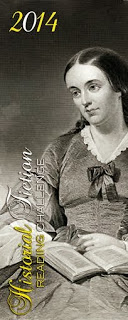 Charles Dickens’s [amazon_link id=”0486268659″ target=”_blank” ]yarn about the redeeming power of Christmas[/amazon_link] is one of my all-time favorite stories. I try to watch a version of it every year, and one year, I read the book itself. When Mr. Timothy came across my radar, I couldn’t resist. I think I requested the book on PaperBackSwap. And then it sat unread on my shelf for quite some time.
Charles Dickens’s [amazon_link id=”0486268659″ target=”_blank” ]yarn about the redeeming power of Christmas[/amazon_link] is one of my all-time favorite stories. I try to watch a version of it every year, and one year, I read the book itself. When Mr. Timothy came across my radar, I couldn’t resist. I think I requested the book on PaperBackSwap. And then it sat unread on my shelf for quite some time.
In Mr. Timothy, Louis Bayard takes up the story of Tiny Tim Cratchit, all grown up and mourning the recent passing of his father. Aside from saying “God bless us, every one,” Tiny Tim is probably most famous for being the saintly crippled child who finally melted old Ebenezer Scrooge’s icy heart. When Scrooge asks the Ghost of Christmas Present if Tiny Tim will live, the ghost replies, flinging Scrooge’s own words back at him: “If he be like to die he had better do it and decrease the surplus population.” Louis Bayard imagines a Timothy Cratchit who is altogether crushed under the [amazon_link id=”0486415864″ target=”_blank” ]weight of expectations[/amazon_link] of having survived and received the beneficence of the former “squeezing, wrenching, grasping, scraping, clutching, covetous old sinner.” He has grown up, but who has he become? He is as lost, in his way, as Ebenezer Scrooge. He lives in a whorehouse, where he pays for his room and board by teaching the madam to read. His parents are gone, and he is reduced to taking handouts from Uncle N (old Uncle Scrooge, that is). He hates himself for being unable to cut the purse strings, but he seems stuck, unable to do anything with his life. Then he finds the bodies of two girls, curiously branded with a letter G, and he discovers another lost little girl being hunted, and fearing she will be next to die, Timothy enlists the help of a foul-mouthed street urchin to save her. What he uncovers is the grossest exploitation of the lower classes by the upper echelons of British society. But is he the man to do anything about it? Bob Cratchit once said that in church, Tim said he was happy that others could see him in church and remember, on Christmas Day, who it was who made blind men see and lame beggars walk. Grown up Mr. Timothy insists he never said any such thing—his father only wished that he had. When it really counts, can Timothy Cratchit really offer salvation to anyone? Can he even save himself?
A page-turning tale of Victorian gothic suspense, this novel really begins to pick up once Timothy is hot on the trail of the people at the center of a horrific child slavery ring. Do not look for Dickens in this novel, though I admit he shows up a bit in chapter 16, when Timothy Cratchit is brought before a magistrate on trumped up charges of sexual assault. I love the description of the lawyer Peter Cratchit has engaged to defend his brother:
A stout, whey-skinned man with a decamping hairline and advancing whiskers, soldierly red on both fronts. The hand he presents to me is quite damp, and there is a prevailing humidity all about his person: wet eyes, wet lips, wet teeth … and, exhaling from his pores, an effluvium that, unless my nostrils deceive me, represents the final gaseous iteration of imported Jamaican rum. … There is no doubt, however, that Mr. Sheldrake exudes confidence. (213)
The whole chapter through had me chuckling, and brought to mind Dickens’s own way with characterization and scenecraft.
Bayard deftly captures the soot begrimed streets of Victorian London, from the refuse in the streets, to the cabbies, to stately manors behind lacy wrought iron fences. Timothy’s character winds up being believable. He has so long been the protagonist of a narrative written by others, as he reflects, that it is easy to see how he might lose his way and find it necessary to discover who he really is. If you are looking for the squeaky clean, cherubic Tiny Tim of myth in this story, you’ll be disappointed. However, if you are looking for a different sort of tale of redemption, Mr. Timothy should do nicely.
Rating:




Check out these other reviews of Mr. Timothy:
- Book Review: “Mr. Timothy: A Novel” by Louis Bayard | John Adcox Reviews Pretty Much Anything
- Towering Timothy: Louis Bayard Deconstructs the Myth of Tiny Tim in ‘Mr. Timothy’ | Metro Weekly
Mr. Timothy is the first historical fiction book to count towards the 2014 Historical Fiction Challenge.
